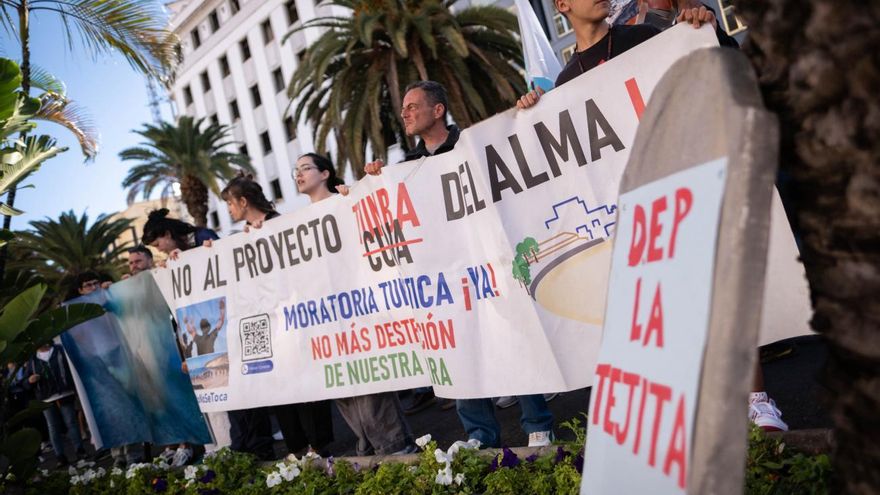
Approximately 300 individuals gathered this Sunday in Santa Cruz de Tenerife to demand that limits be imposed on mass tourism and advocate for a change in the tourism model. They believe that, in their view, the Canary Islands “is no longer a paradise.”
The demonstration was organised by the group opposing the massification of tourism, titled “Canary Islands have a limit“, which previously held the first protest against the archipelago’s tourist model on April 20 of last year. This time, they have chosen to coincide their protest with the Congress of German travel agents, FVW Travel Talk, taking place in Santa Cruz de Tenerife.
One of the representatives from the group, Felipe Ravina, stated in an interview with Efe that their demands would persist in this domain as “absolutely nothing has changed following the significant protests last year.”
Felipe Ravina pointed out that requesting a moratorium on tourism does not oppose the industry but rather implies “that limits must be established,” which would be beneficial for the islands and would provide higher quality tourism. He also indicated that this approach would benefit “those who reside here, as ultimately everyone is experiencing the repercussions of mass tourism in some form.”
He mentioned that initially, the protesters were a minority concerned about environmental issues, but now this predicament impacts everyone since “if it is not someone purchasing your property, it will be a holiday residence, or your longstanding local area will transform into luxury villas.”
“You visit the supermarkets you frequented for years, and Spanish is no longer heard,” remarked the spokesperson for the Canary Islands have a limit group. He stressed that the tourism moratorium implemented in other regions of the world “simply works to cease the growth of tourism; it maintains what exists but prevents further expansion” and, above all, “guides it towards a type of tourism that shows greater respect for the islands.”
At present, mass tourism exists “that does not honour natural areas, disregards culture, and fails to show respect for the islands in general, as it involves millions and millions of people.”
Additionally, there is the degradation of the islands and the consumption of land, which is “affecting the local population increasingly burdened by this mass tourism.”
When discussing “regenerative” tourism, the objective is, in his view, to focus on “traditional tourist areas belonging to locals.” Therefore, the spokesperson for Canary Islands have a limit has stated that further demonstrations will be organised to convey to the political class “that discontent is on the rise.”
















